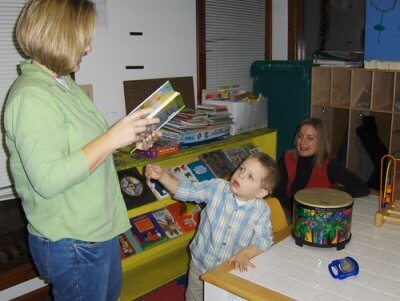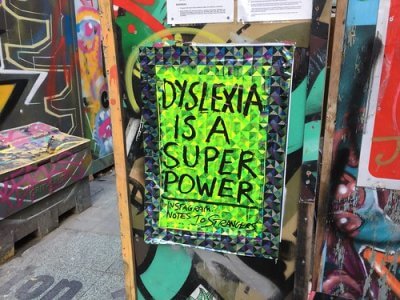Types of Learning Difficulties – Time to Get Tested?

By: Alan Levine
Does your child not seem to be progressing like his or her classmates? And you are wondering if it’s because of a learning difficulty? Or is it you yourself who is struggling?
What is a learning difficulty?
A learning difficulty is neurological. Your brain takes in and processes information differently.
The ways of learning that are prioritised in our modern world don’t match the way you yourself learn, and you end up struggling.
Learning difficulties don’t mean you have a low IQ. Most people with learning difficulties have normal or above normal IQ results and can do quite well in school, except for in one or two areas. They might be creative and good at comprehension, finding ways to get by despite their challenges.
Because of this, you can have learning difficulties and not even realise it, instead calling yourself ‘lazy’ or ‘different’.
[Exhausted by your parenting struggles? Feel like there is nobody who understands your frustrations? Consider talking to an online therapist who gets it, and provides the support you need.]
Learning difficulty vs learning disability
In America, what is seen as a ‘learning difficulty’ here in the UK, like, say, dyslexia, can still be called a ‘disability’ or an ‘intellectual disability’ instead.
Even in the UK you’ll find varying definitions. This is due to a growing understanding of learning challenges and to the politics around terminology. There is a move towards dropping the term ‘difficulty’ altogether in favour of ‘differences’, and many educational psychotherapists here use the term, ‘specific learning difference’, or ‘SpLD’.
But in general the difference between ‘disability’ and ‘difficulty’ is still seen as one of intellect and coping. If it’s a learning difficulty, you might struggle, but you can still cope and have an independent life. A learning disability affects intellect to the point you can’t manage independently but need support for your day-to-day life.
**Note that the British Royal College of Psychiatrists, however, uses learning disabilities the same as above, but calls learning differences and difficulties “specific learning disabilities’.
Do only children have learning difficulties?

By: KOMUnews
Recognition and support for many learning disorders is modern, and for many just was not available when they were at school.
Were you seen as a ‘problem child’, or written off as ‘different’ because of a ‘high IQ’? If you struggle with reading, writing, or maths as an adult, you might have an unrecognised learning difficulty and can still get tested.
Further signs of a learning difficulty
Further signs of an adult with a learning difficulty can include that you:
- see yourself as a bit stupid, not as good as others, flawed, or ‘just the creative type‘
- never study new things because you’ve decided learning is ‘boring’
- manage to read and write but are clumsy and not good at talking
- are told you have potential but then you never seem to reach it
- feel like your mind lets you down sometimes and you have memory difficulties
- find staying organised impossible, you are always late
- have sensitive senses – you can’t block things out or get ‘sensory overwhelm‘
- struggle in the workplace
- suffer anxiety and stress when it comes to banking or having to fill out forms
- have issues in relationships because you come across as ‘different’ despite best efforts to fit in.
The different types of learning difficulties
Note that you might feel you or your child match more than one of the following learning difficulties. It’s actually common to have several learning difficulties co-existing together.
Dyslexia.

By: Matt Brown
The most known learning difficulty, it’s also the most common. The UK’s Mental Health Foundation estimates it affects 10% of the population. It tends to run in families.
Dyslexia is not just about struggling with reading – it affects the speed at which you receive and store information.
So yes, you might find words jumble on a page and you reverse letters, but you might also be bad at directions, and not be good at ordering your ideas.
Note that dyslexia can be different for one person than another. For example, one person might find reading near impossible, but can memorise easily. Another might find they can guess their way through texts fairly well, but can’t remember well.
Dyscalculia
Do you struggle with maths, symbols, dealing with money, or making sense of time and scheduling? Did you have a hard time learning how to read time on analog clocks? Sometimes grouped under dyslexia, dyscalculia is also called ‘number blindness’ as it means you struggle with anything to do with counting or quantities.
Dysgraphia
This learning difficulty affects the connection between language and motor skills. Sufferers find handwriting hard, might use odd spacing when they write, and might be poor spellers. Trying to think and write at the same time can cause overwhelm.
Closely related developmental disorders
Looking for a learning difficulty that isn’t on the list above? The following are often lumped in as ‘learning difficulties’ but are actually, according to clinical definition, closely related developmental disorders.
Dyspraxia.
It tends to comes hand-in-hand with dyslexia, as well as being connected to ADHD and Asperger’s syndrome. And because it can make educational activities a challenge it’s mistaken as a learning difficulty.
But dyspraxia is developmental disorder that affects muscle control – in fact its other name is ‘development co-ordination disorder’ or DCD.
Children with dyspraxia have poor coordination and spatial awareness, including poor hand-eye coordination and troubles discerning left and right. They can sometimes even struggle with speaking.
This can all translate into things like concentration issues, emotional problems, and struggles to plan things and be organised.
Attention deficit hyperactivity disorder (ADHD).
ADHD is now understood to not always involve hyperactivity. While all children with ADHD struggle to control behaviour, have attention issues, and can be restless and unpredictable? In some children, particularly girls, hyperactivity is replaced by dreaminess and ‘spacing out’.
In adult ADHD the strongest symptoms are lack of focus and an inability to commit to things and finish them.
Autism.
Because autism affects a child’s communication and behaviour skills, learning is often greatly impacted. And it often is found side-by-side other learning disorders.
Note that some children who aren’t talkative outside of the home could be misdiagnosed as being on the spectrum when really it’s an anxiety disorder called selective mutism.
Learning difficulties not officially diagnosed in the UK
Sure your child has a specific learning difficulty you’ve read about on the internet, but can’t find a place in the UK to get a diagnosis? Unfortunately the UK does not use the same diagnostic manual as America and diagnoses differently.
Auditory processing disorder.
APD is not a hearing ‘impairment’ as hearing is normal – it’s just that the brain interprets sound differently. A child with APD might struggle to hear differences in words, not seem to enjoy music like other kids, and be unable to concentrate if there is a lot of background noise.
Here in the UK auditory processing disorder is classed by the NHS as a ‘hearing problem’. Elsewhere you will see it referred to as a ‘processing difficulty’ or ‘processing deficit’. This said, it does mean your child is seen as having special educational needs and you will be able to access support.
If auditory processing seems to only affect language, then it can also sometimes be referred to as ‘language processing disorder’. This can look like a child who struggles to understand what is read to them, gets frustrated trying to explain their ideas verbally, but can easily draw out what they want to describe.
Non-verbal learning difficulties.
‘NVLD’ still tends to be seen as a lesser known part of the autism spectrum here in the UK.
Does your child get by in school as he or she is good at explaining things and at talking? But are there all sorts of other issues related to co-ordination? Is he or she clumsy, do they struggle with manual tasks like shoe tying and using scissors, or following a set of instructions? And do they not seem to be able to read other people’s body language? They might have a non-verbal learning difficulty.
Suspect it’s a learning difficulty?
If you or your child have the signs of a learning difficulty then it’s best to seek the advice of a professional. You can start by speaking to your GP, or in the case of a child, his teacher or school.
You can also book a session with an educational psychologist privately. They will take a thorough life history and run you or your child through the necessary tests, and can of course answer any question you might have.
Harley Therapy connects you with London’s top counsellors, psychotherapists, psychologists, and psychiatrists. If you are not in London, you can use our booking platform to find UK-wide support for you or your child.
Still have a question about the types of learning difficulties? Ask in the public comment box below. All comments moderated for content and no abuse or advertising allowed.





Hi there:
I am a primary school (grade 4 – 7) male teacher in a rural area in the province of the Eastern Cape, South Africa.
I believe that the “undefined’ learning difficulty/difficulties that I am dealing / we are dealing with, can be summarised as follows:
* when presenting learners with a written test, some would literally re-write the question paper as answers;
* other learner would write their own ‘made-up’ non-sensible language to answer the questions;
* when copying notes or questions from the black board, the same learners would re-write it in complete unrecognisable, unintelligible language of their own. For example: “The cat sits on the wall.” would be something like: “dtu ghusf uino ydgei rewaj”;
* many of these kids are unable to read(some are able to recognise individual words), while others can read, but without comprehension.
I have not come across any article that touches on these learning difficulties that I (we) encounter.
Thanks for your response
Kind regards
Raol V. Simpson
Sounds interesting Raol. Any chance they are just creatively combining English with their own mother tongue?
I’m 23 years old and strongly suspect i have a few learning disabilities. I have an idea of what i think i may have, but i’m not sure. Where can i go to get tested? I see all this stuff for kids but not for adults. Can i see someone for a test to cover my abilities in all areas since i don’t actually know what specific disability i have?
Hi Georgina, yes, absolutely, you can go see an educational psychologist who will test you for all learning differences at once. Or sometimes it will be someone referred to as a ‘clinical psychologist’ specialising in learning difficulties. In any case it’s a psychologist you’ll end up working with. You can talk to your GP and attempt to get a referral through the NHS, depending on your area it might be more or less difficult and there may or may not be a long wait. Otherwise you can google an educational psychologist who works with adults in your area if you are willing to pay privately. This can mean less of a wait and that you get to decide what psychologist you work with, with the NHS it’s generally luck of the draw. If you are by chance at college or uni, go talk to the mental health team at your school, they should be able to arrange for a low cost assessment. And if you have a job with workplace insurance, depending on what insurance you are under, many cover a few sessions with a mental health specialist, so worth looking into. Best, HT.
Hi I have diagnosed autism, dyspraxia and slowed processing but strongly suspect I have some additional still as yet undiagnosed learning disabilities.
I have been told by an OT I should have a full cognitive assessment and that I should have my difficulties with visual processing further looked into. After reading up on it I strongly suspect I believe I may have non verbal learning disorder. I also have difficulties with reading quickly, visual tracking and difficulties organising my thoughts for writing. Ergo with more complex writing tasks I need to both reread and rewrite more complex prose a ridiculous number of times. This obviously affects my ability to work and study and I hope to be able to use compensatory strategies and have reasonable adjustments made.
Can you please give me some indication as to how much an assessment with yourselves would cost?
Do you accept Right to choose or independent funding requests for NHS funding of such assessments? I live out of area but there is nobody local to myself who does assessments for possible NVLD in adults.
Do your assessments go beyond labels to give a more detailed profile along with personalised recommendations?